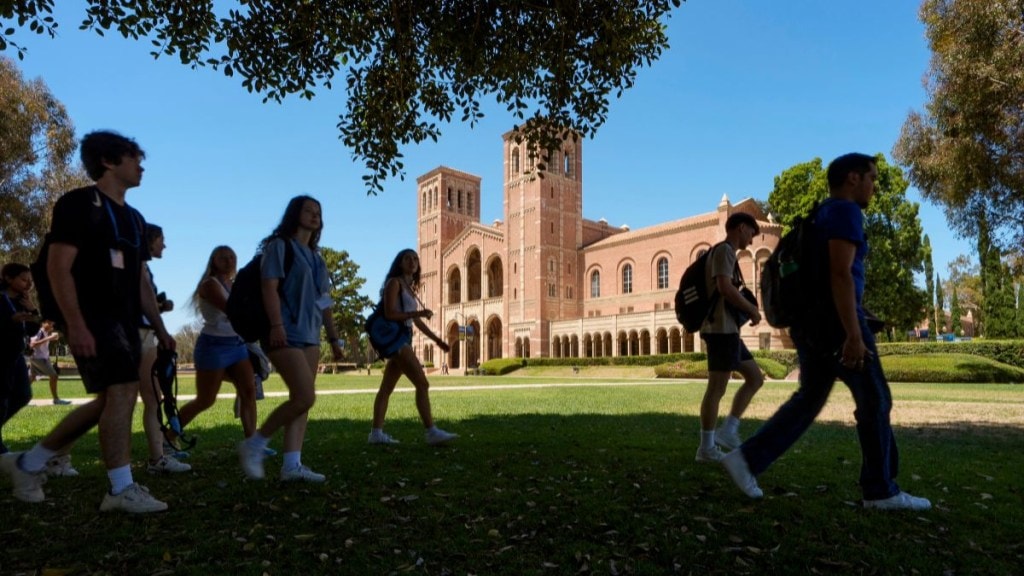The US is losing favour among Indian students as a preferred higher education destination, with fresh data showing applications to American universities falling 13% year-on-year.
Rising costs, tougher visa regimes, and uncertain post-study work pathways are driving the shift, according to the Transnational Education (TNE) Report 2024-25 released by upGrad Study Abroad.
Germany has emerged as the clear growth market when it comes to Indian students choosing international destinations for higher studies, with its share of Indian students surging from 13.2% in 2022 to 32.6% in 2024-25. The UAE, where Indians now make up 42% of the international student pool, is also gaining traction.
“Indian students today are far more intentional about their education choices — driven by geopolitical awareness, cost consciousness, and the realities of stricter visa regimes and uncertain post-study pathways.
“The traditional ‘Big Four’ destinations are no longer the default; instead, Europe, the Middle East, and APAC are emerging as smarter, future-ready alternatives,” said Praneet Singh, Associate Vice President – University Partnerships, upGrad Study Abroad.
Canada’s popularity has dipped sharply, sliding from 17.9% to 9.3% over the same period, while the UK has seen an 11% drop in student visas issued. Alongside these, Ireland has carved out a niche with its English-medium courses and shorter degree formats.
Decline of ‘Big Four’ destinations
This shift underscores a broader trend: affordability and return on investment have overtaken immigration aspirations as the central driver for international education.
Affordability and career-centric pathways
The report, based on responses from over 100, 000 aspirants, said that only 19.9% of students now prioritise permanent residency, compared with nearly half (48.2%) who prioritise better jobs. A parallel analysis found that 86.5% of aspirants prefer master’s degrees, indicating a preference for shorter, career-oriented pathways.
Management and MBA programmes have nearly doubled in popularity to 55.6% from 30% three years ago. STEM courses account for 38.9% of student choices, led by computer science, IT and data science.
Funding patterns point to a pragmatic outlook: 33% rely on education loans and 28% on scholarships, while 22% self-fund their studies. The majority of students operate within budgets of Rs 10–30 lakh, suggesting a clear emphasis on calculated investment in employability.
Echoing this, Amit Garg, president of upGrad Study Abroad, added, “At upGrad Study Abroad, we empower a generation that is unapologetically career-centric. Studying abroad is not just about earning a degree. It is a journey that opens your mind, broadens your horizons, and shapes who you become.”

